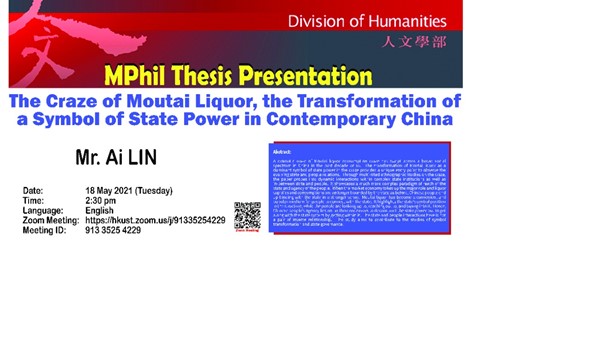Abstract:
A dramatic wave of Moutai liquor consumption craze has swept across a broad social spectrum in China in the past decade or so. The transformation of Moutai liquor as a dominant symbol of state power in the craze provides a unique entry point to observe the evolving state and people relations. Through multi-sited ethnographic studies on the craze, the paper probes into dynamic interactions within complex state institutions as well as in-between state and people. It showcases a much more complex paradigm of reach of the state and agency of the people. When the market economy takes up the major role and liquor supplies and consumptions are no longer bounded by the state as before, Chinese people end up binding with the state in a stronger sense. Moutai liquor has become a convenient and popular medium for people to connect with the state. It highlights the state’s central position in the structure, while the people are looking up to, reaching out to, and taping into it. Hence, Chinese people’s agency lies not in their endeavors to deconstruct the state power but to get along with the state system by getting within it. The state and people interactions here is not a pair of inverse relationship. The study aims to contribute to the studies of symbol transformation and state governance.
https://engage.ust.hk/event/7104094
huma@ust.hk
